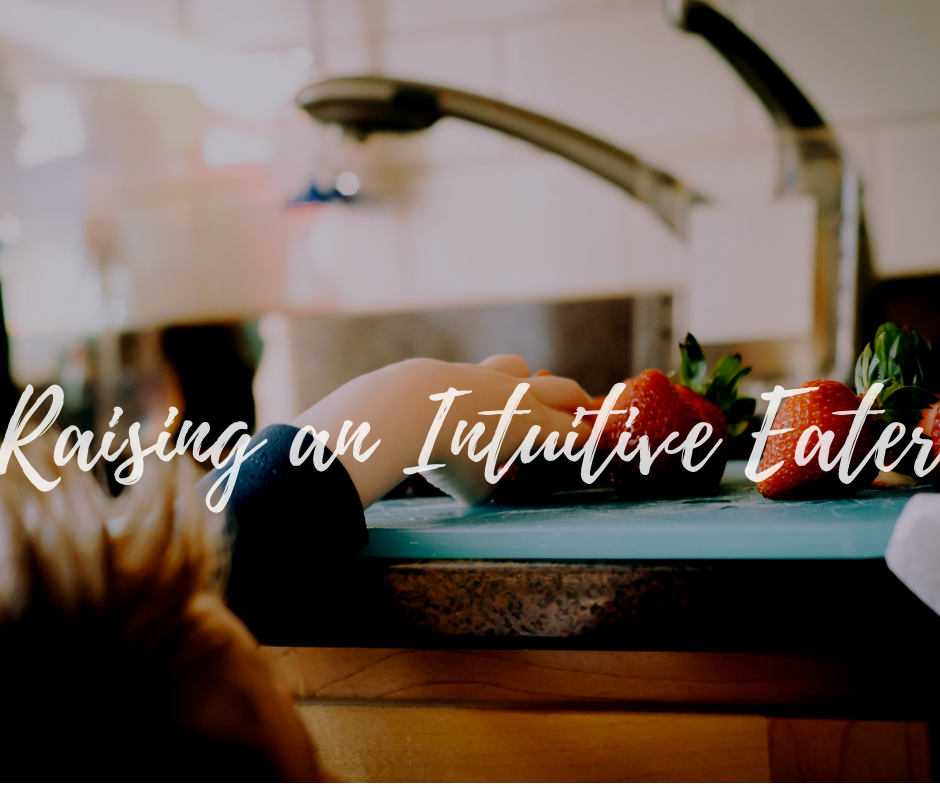Raising An Intuitive Eater
As a mom and a therapist who specializes in helping those with disordered eating reconnect to eating intuitively, I know the importance of letting a child’s internal cues guide their eating habits rather than external cues.
From my professional training, I understand that the “parent provides” and the “child decides.” In other words, parents are responsible for the what, when, where, and (to some degree) the how of feeding, while the child is responsible for how much and whether or not they eat.
But in the perils of parenthood, I find myself negotiating with my toddler in ways that I later realize may sway him from that very intuition I really want to be encouraging.
It tends to look something like this, “…just try the broccoli. If you try the broccoli, I will give you your gummy bunnies.” Or, “No more sweets, you’ve had enough today…”. I quickly catch myself and try to correct, “…it’s OK to have sweets, but we need other nutrients to build healthy bodies, too.”
Needless to say, I quickly get lost in the minutia that is parenthood. So, when trying to raise an intuitive eater, I decided to turn to a friend and colleague, Gina Mateer, for sage guidance. Gina is the founder of Nom-Nomaste and is not only an expecting mom here in Austin, but also a Registered Dietitian and Certified Eating Disorder Registered Dietitian.
Here are three keys to raising an intuitive eater that she had to share:
As a mom to be, I have been thinking a lot about how I will raise my little kiddo to become a competent and intuitive eater. Through my work and the research on intuitive eating there are a few things that always show up as integral parts of raising children to be intuitive eaters.
1. Family meals. I know it seems hard, and nobody expects perfection, but prioritizing family meals, or at least one parent sitting with the child and eating together, improves children’s relationship with food.
2. “All foods fit” approach. Make sure that your house has a variety of foods and that foods are not judged as “good” or “bad.” This is crucial in supporting a child in developing a healthy relationship with food. It can be tempting to follow the trends but cutting out certain foods can actually lead to an inability to self-regulate around these foods.
3. Consider your own relationship with food and your body. Educating children about how all bodies are good bodies is amazing, but kids also learn from your actions not just your words. Do you eat a variety of foods? Do you prioritize your own self care and body kindness? Or do you tend to be self critical and consistently dieting?
Want to learn more about raising an intuitive eater? Gina recommends the work of dietitian Ellyn Satter and the Division of Responsibilities. For mom’s-to-be, check out the book Born to Eat for an evidenced-based and supportive approach to baby led weaning, which has been researched to support continued intuitive eating throughout childhood.
Keep it real, Mamas.
Chelsea










